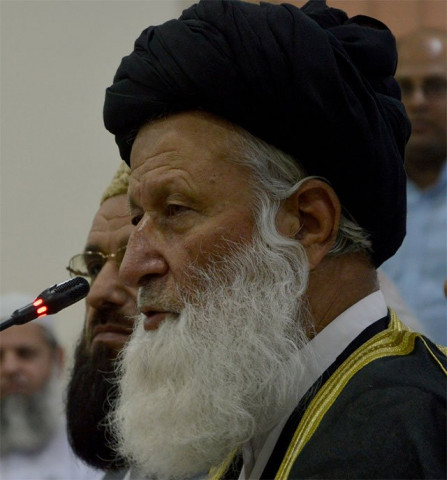Senate panel questions legal standing of CII
Human rights committee will write to law ministry to determine council’s position

Human rights committee will write to law ministry to determine council’s position. PHOTO: EXPRESS
The CII is a constitutional body of religious scholars, who advise the legislature whether or not newly drafted laws are according to Islamic principles with reference to the Quran and Sunnah.
50 per cent representation on CII demanded for women
The criticism of the advisory council came in a meeting of the Senate’s Functional Committee on Human Rights, which discussed a host of issues on Tuesday.
The committee, chaired by MQM Senator Nasreen Jalil, observed the ‘anti-women’ stance of the CII promoted violence against women and had contributed to an increase in crimes against the gender.
The harshest amongst the CII critics was Senator Farhatullah Babar, who believed the number of attacks against women, especially the recent burning cases, had increased after some statements from the clerics.
The CII chairman had recently deemed that husbands could “lightly beat” their wives if they needed to be disciplined. The controversy stems from a pro-women bill passed by the Punjab Assembly in March this year which was rejected outright by the clerics’ council, starting a debate between the government and the CII. The council has to forward its proposed bill to the provincial legislature.
At the Senate committee meeting, Babar took exception to the viewpoint of clerics about husbands beating their wives. A common man might go to any extent to make this a practice, he feared.
Senator Sitara Ayaz termed the statements of the CII members “ridiculous”. To this Babar said the government seriously needed to review the role of the constitutional body.
Disband Council of Islamic Ideology: HRCP
The committee chairperson also believed the CII’s recommendations encouraged a negative attitude towards women and incited violence against them.
Senator Nasreen said the CII had piled more misery on women instead of providing some sort of relief to them. The CII members seem to be unaware of legislation in a modern age, she said.
She lamented the council was not even willing to accept DNA tests as evidence in rape cases that showed the conservative approach of the clerics.
Senator Babar said the council was required to submit annual reports to Parliament but had not done so since 1997.
The human rights committee decided to write a letter to the law ministry to question the constitutional position of the council.
The panel also urged the government to pass the anti-honour killing bill, which has been pending since April after the joint parliamentary sitting. The bill aimed at banning the use of Qisas and Diyat laws in honour killing cases.
Okara farms
The panel also expressed serious concern over the registration of terrorism cases against tenants of Okara military farms and recommended district management to withdraw all such cases.
Islamising laws: In a first, Senate debates CII annual report
The senators unanimously recommended that trying citizens of the country under terrorism charges would send a wrong message in fighting against terrorism.
After a representative from the Punjab government told the members the farmland belonged to the provincial government, Senator Babar asked when the land did not belong to the military or the tenants then why were people being ejected from the lands?
Military courts
The Senate panel members also asked the government to implement the recommendations of the Commission on Enforced Disappearances and the directions of superior courts from time to time to bring the security agencies under some legislation.
The senators also advised the government to sign the International Convention on Enforced Disappearances. Babar demanded the appointment of observers in order to monitor military court proceedings.
Published in The Express Tribune, June 29th, 2016.



















COMMENTS
Comments are moderated and generally will be posted if they are on-topic and not abusive.
For more information, please see our Comments FAQ